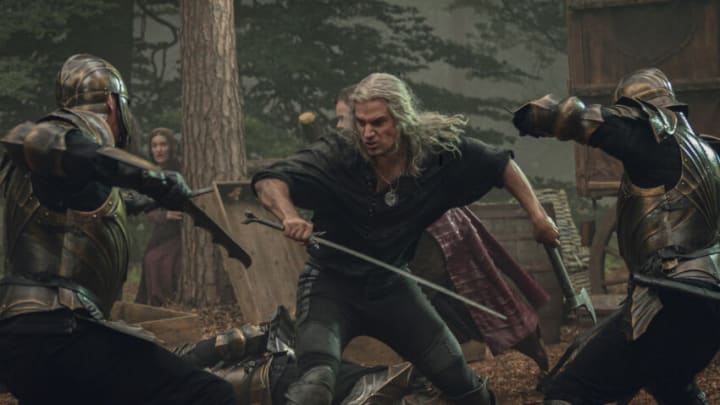
The evolving narrative surrounding The Witcher
If people had simply disliked The Witcher‘s third season, that would be one thing; everyone is entitled to their opinions on art. But the idea that it’s the worst season is easily disproven with a rewatch. As I mentioned, the production values are simply superior to what’s come before, full stop. Just go back and look at the colored contacts or visual effects in season 1, or the often lackluster fight scenes in season 2 if you need proof. The same is true of the writing; there’s so much more nuance, depth, and character development in season 3 that it practically feels like a different show.
And perhaps that’s the problem. The show’s first two seasons gave a lot of ground in order to make the story more palatable for TV. Season 2 in particular is an entirely different story. People who liked season 2, or the show in general before now, might have gotten whiplash when the series course corrected in season 3 so it would be closer in tone to the books.
Executive producer Tomek Baginski’s recent comments about dumbing the story down for western audiences and young people shine a light on the flawed ideology behind the series: make it simpler so it has broader appeal. While I’m sympathetic to the challenges of adapting a complicated fantasy series, I think it’s safe to say that this is a questionable approach. Western viewers loved shows like Game of Thrones, Succession, and Breaking Bad, all complex stories with flawed characters. Audiences like to be challenged, not patronized.

The final ride of Henry Cavill
But when it comes to the reaction to season 3, we’re seeing something else. It’s no secret that fans were upset when it was announced that Henry Cavill was leaving the show. Cavill had been an outspoken fan of The Witcher games, and the books as well after he was introduced to them by showrunner Lauren Hissrich. His departure seemed to be all the proof some people needed that this was going to be The Witcher’s worst, least faithful season ever.
And that narrative has persisted even though the season is out and we can see that it’s plainly untrue. Take this review from Forbes, which fantasizes about an alternate universe where Henry Cavill is co-showrunner of the series and “the people in charge of making the show were all devoted to making it as faithful to the books as possible,” while simultaneously complaining that Geralt spends the final two episodes of the season “laying around in bed recovering from his wounds” and an “entire episode is devoted Ciri wandering around in the desert.” That makes no sense, since Geralt’s recovery in Brokilon and Ciri’s time in the desert are some of the most outright faithful parts of the show, drawn directly from the pages of Time of Contempt. I get the idea that had The Witcher changed these parts, Forbes would have complained anyway.
The third season is paced pretty much exactly how the book is paced as well. The climax at Thanedd happens in the middle of the season and we get two slower episodes afterward to orient to the new normal. That’s simply the way this part of The Witcher story is constructed, and if anything, the TV show made the content of those final two episodes more exciting, not less. That’s true for the season as a whole, perhaps excepting some details like the structure of the Thanedd coup. Geralt doesn’t fight a single monster during this part of the book series; meanwhile, season 3 contained Cavill’s best creature hunts of the entire show outside of season 1’s striga.

The whole point of The Witcher story is that mob mentality is bad
Ultimately, it seems that many people are convinced that The Witcher has gotten worse and worse over time. The irony is that the folks who believe the final episodes wasted Henry Cavill are missing his best work on the series yet. He brought his A-game to season 3, showing off his chops in everything from its epic battles to quiet moments like Geralt learning of his mother’s death.
It’s even more ironic to see this sort of mob mentality leveled against The Witcher, which is at its heart a story about the dangers of mob mentality and xenophobia. Mobs and the danger they represent when they ignore objectivity in the name of baseless anger is one of the central ideas that Sapkowski explores in the books. I can’t imagine how the fans railing against season 3 will react when they learn how the story ends.
If you are angered by anything you’ve read here, think I’m wrong and blind and just fanboying out on The Witcher season 3, then I challenge you to rewatch the previous seasons. If you do that, and honestly believe that season 3 is the worst, then sure, come tell me about it. But I doubt you will. Because it isn’t.
The first three seasons of The Witcher are streaming on Netflix.
To stay up to date on everything fantasy, science fiction, and WiC, follow our all-encompassing Facebook page and sign up for our exclusive newsletter.
Get HBO, Starz, Showtime and MORE for FREE with a no-risk, 7-day free trial of Amazon Channels
